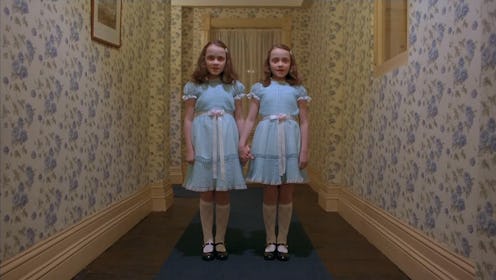Entertainment
'The Shining' Was Not So Beloved 35 Years Ago

When The Shining first came out 35 years ago today, critics did not foresee it becoming the classic that it is. While there were plenty of positive reviews, many critics saw the psychological thriller as one of Stanley Kubrick's weaker films. A major complaint was that the film was very unfaithful to Stephen King's excellent source material. The Shining was nominated for a couple of Razzie awards for Kubrick's direction and Shelley Duval's acting.
Perhaps the less than enthusiastic initial response was because it was one of the first Kubrick films to be released to a wide audience. Critics seemed to see the film as pandering in some way, and it's true that the film has remained popular with wide audiences. However, it's now viewed as one of the best horror films of all time. Martin Scorsese ranked it as one of the scariest movies of all time, and it has been included in many top horror lists, as well as top overall movies. However, at the time, many critics did not respond favorably to the horror film, and they certainly did not see it becoming the classic it is today. Here's what the critics had to say when it first came out in 1980.
Variety was a little offensive:
With everything to work with, director Stanley Kubrick has teamed with jumpy Jack Nicholson to destroy all that was so terrifying about Stephen King’s bestseller...The crazier Nicholson gets, the more idiotic he looks. Shelley Duvall transforms the warm sympathetic wife of the book into a simpering, semi-retarded hysteric. – Variety
The Guardian was confused:
I can’t help thinking that the Stephen King original, with its spook-ridden, other-worldly junketings, gets in the way of Kubrick’s grim vision, finally cheapening and distorting it. The genre within which the film is cast exerts too great a price. Nicholson’s performance, even if deliberately over the top, still shouldn’t encourage as much laughter as fear. Nor should the final twists of the plot look so illogical. If The Shining isn’t trivial, it certainly encourages one to think that it is. — The Guardian
The New York Times makes a valid point:
In The Shining, which opens today at the Sutton and other theaters, Mr. Kubrick tries simultaneously to unfold a story of the occult and a family drama. The domestic half of the tale is by far the more effective, partly because the supernatural story knows frustratingly little rhyme or reason, even by supernatural standards. Dead twins haunt Danny and then stop haunting him; a mirror reflects some things and not others; the ghosts aren't quite subjective and they aren't quite real. Even the film's most startling horrific images seem overbearing and perhaps even irrelevant, like Mr. Kubrick's celebrated monolith in 2001. — The New York Times
The Chicago Reader found it boring:
Kubrick is after a cool, sunlit vision of hell, born in the bosom of the nuclear family, but his imagery—with its compulsive symmetry and brightness—is too banal to sustain interest, while the incredibly slack narrative line forestalls suspense. — Chicago Reader
And it just didn't make sense to the people at Time:
If one is determined to find a super natural explanation for the strange goings-on in the old, grand, snowbound hotel in the Rockies, it is just barely possible to do so. But Stanley Kubrick really does not care. His adaptation of The Shining, Stephen King's pulpy haunted-house novel, keeps forcing reasonable — or non-occult — interpretations on the behavior, variously bonkers and bloody, that his camera records with its customary elegance. — Time
Image: Warner Bros.